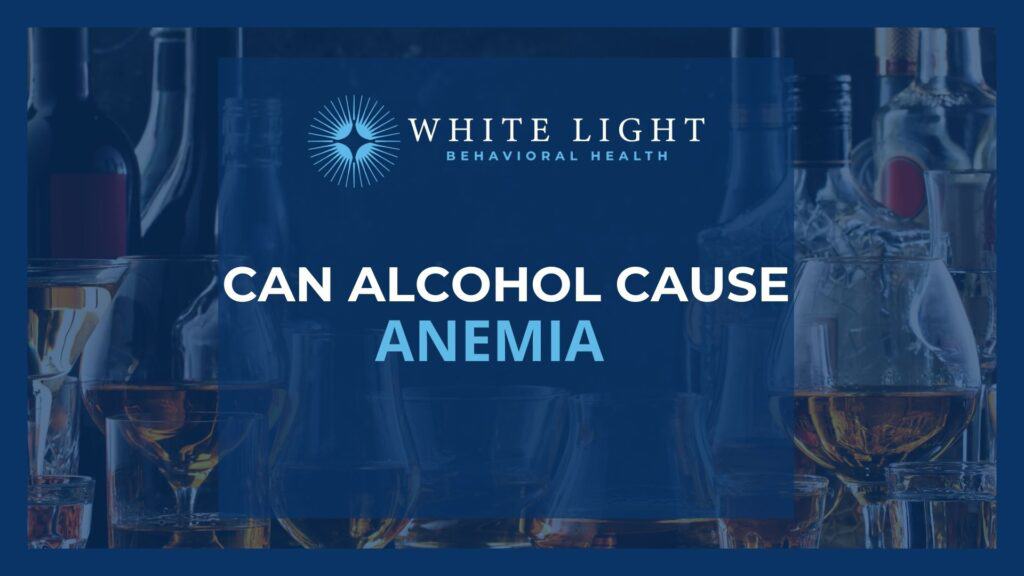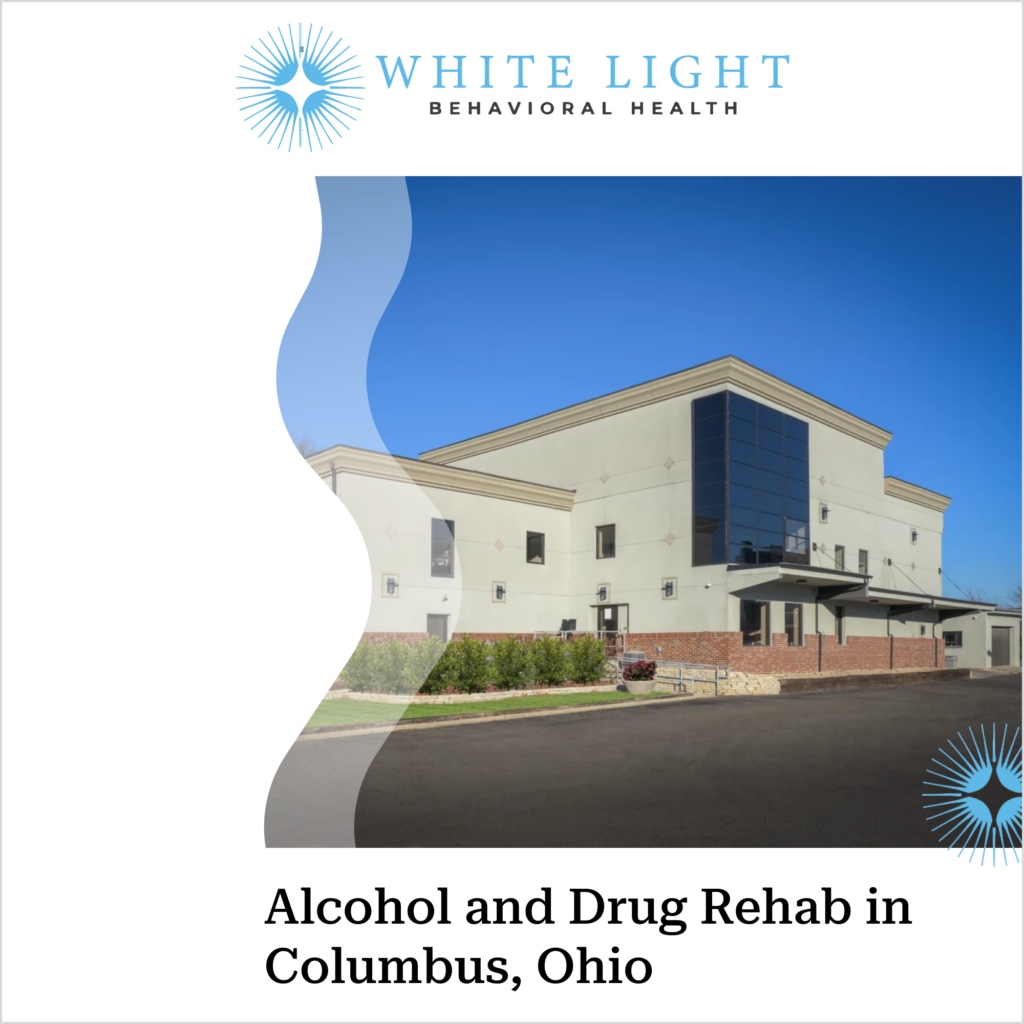Can Alcohol Abuse Cause Anemia?

Yes, alcohol abuse causes anemia by interfering with the absorption of essential nutrients like folate, iron, and vitamin B12, damaging the bone marrow, and irritating the stomach and intestinal lining. This leads to megaloblastic anemia or iron-deficiency anemia, resulting in symptoms such as fatigue and weakness. In Ohio, where nearly 20% of adults aged 18 and older binge drink weekly, alcohol-related anemia represents a significant health concern affecting thousands of residents.
Diagnosis involves reviewing your medical history, performing a physical exam, and conducting blood tests.
With proper treatment, including alcohol cessation and nutritional support, alcohol-related anemia is reversible.
What Are The Symptoms of Alcohol-Related Anemia?
The symptoms of alcohol-related anemia include fatigue, pale skin, shortness of breath, and irregular heartbeat.
Here are the symptoms of alcohol related Anemia:
- Fatigue and weakness: Feeling tired or weak even after adequate rest is a common symptom of anemia. It occurs due to a decreased oxygen-carrying capacity of the blood.
- Pale skin and mucous membranes: Anemia cuts down the number of red blood cells, resulting in paleness of skin, lips, and lower eyelids.
- Shortness of breath: Insufficient red blood cells or hemoglobin decreases oxygen supply to the tissues, causing breathlessness, especially during physical exertion.
- Rapid or irregular heartbeat: Anemia stresses the cardiovascular system, leading to a rapid or irregular heartbeat.
Did you know most health insurance plans cover substance use disorder treatment? Check your coverage online now.
How Does Alcohol Abuse Cause Anemia?
Alcohol abuse causes anemia through nutrient deficiencies that impair essential vitamin and mineral absorption (particularly folate, iron, and B vitamins), direct damage to bone marrow function that reduces red blood cell production, and gastrointestinal tract inflammation that disrupts the body’s ability to properly absorb and utilize the nutrients necessary for healthy blood cell formation.
Here is how alcohol abuse causes anemia:
Nutrient Deficiencies
Excessive alcohol consumption leads to nutrient deficiencies, impairing the production of healthy red blood cells and contributing to anemia. Alcohol prevents the absorption and utilization of essential vitamins and minerals in red blood cell formation. Notably, alcohol disrupts the absorption of B vitamins (especially folate), C, D, iron, and zinc.
Folate, a B vitamin essential for red blood cell synthesis, is particularly affected by alcohol. Alcohol impairs folate absorption, reduces folate levels in the body, and inhibits its activation. Folate deficiency results in megaloblastic anemia, where red blood cells are larger and fewer in number.
Iron is vital for forming hemoglobin, the protein that transmits oxygen in red blood cells. Alcohol impairs iron absorption from the diet and promotes iron deficiency anemia. Alcohol-induced liver damage also disrupts iron metabolism, further exacerbating the risk of anemia.
More Resources on Addiction:
Zinc and vitamin C are crucial for the adequate functioning of red blood cell synthesis enzymes. Alcohol impairs the absorption and utilization of these nutrients, leading to inadequate enzyme activity and impaired red blood cell production.
Bone Marrow Function
The bone marrow plays a crucial role in producing red blood cells. Chronic alcohol consumption adversely affects bone marrow function, decreasing the production of healthy red blood cells and anemia.
Alcohol damages the bone marrow, reducing its ability to generate red blood cells. It disrupts the normal development and maturation of red blood cells, producing abnormal cells that are less efficient in oxygen transport.
Additionally, alcohol suppresses the production of erythropoietin, a hormone necessary for the formation of red blood cells. Consequently, impaired erythropoiesis and abnormal red blood cell production contribute to anemia.
Gastrointestinal Health
Alcohol can cause significant damage to the gastrointestinal tract, leading to malabsorption of nutrients and anemia. Alcohol irritates and inflames the lining of the stomach and intestines, impairing the absorption of essential nutrients.
It damages the small intestine, reducing the surface area for nutrient absorption. This disruption affects iron absorption, vitamin B12, and other vital nutrients necessary for red blood cell synthesis according to the study of Health Match.
In addition, alcohol-induced liver damage can further exacerbate anemia. The liver is crucial in metabolizing and storing iron, vitamin B12, and folate. Alcohol-related liver disease can impair liver function, disrupting the processing and storage of these essential nutrients.
How The Diagnosis of Alcohol-Related Anemia is Done?
The diagnosis of alcohol-related anemia is done through a detailed medical history review, thorough physical examination, invasive bone marrow examination, various blood tests, and complete gastrointestinal evaluation. The healthcare provider will look into your drinking habits, how long you’ve been drinking, and your past health issues, and also check for signs like paleness or a fast heartbeat.
Here is how the diagnosis of alcohol related anemia is done:
Contact us today to schedule an initial assessment or to learn more about our services. Whether you are seeking intensive outpatient care or simply need guidance on your mental health journey, we are here to help.
Medical History and Physical Examination
The healthcare provider will inquire about alcohol consumption patterns, duration, and other relevant medical history. A physical examination reveals signs of anemia, such as pallor, rapid heart rate, or abnormal heart sounds.
Bone Marrow Examination
In some cases, a bone marrow examination is necessary to evaluate the function and structure of the bone marrow. This procedure involves extracting a small sample of bone marrow from the hipbone or sternum for laboratory analysis.
Blood Tests
A complete blood count (CBC) is a standard blood test to assess red blood cell count, hemoglobin levels, hematocrit, and other parameters, according to an NLM report updated in 2023 by Freeman AM, Rai M, Morando DW. Physicians diagnose anemia when these values fall below the normal range. They perform additional blood tests to determine specific nutrient deficiencies associated with alcohol-related anemia, such as serum iron levels, vitamin B12, folate, and other essential nutrients.
Gastrointestinal Evaluation
Since alcohol-related anemia is linked to gastrointestinal malabsorption, an evaluation of the gastrointestinal tract is warranted. Tests such as endoscopy, colonoscopy, or fecal occult blood tests help identify underlying gastrointestinal issues.
What Are The Treatment Options for Alcohol-Related Anemia in Ohio?
The treatment options for alcohol related anemia in Ohio include completely stopping alcohol intake, nutritional support, folate supplementation, and iron supplementation.
Here are the treatment options for alcohol related anemia:
Rediscover Life at White Light Behavioral Health
Get the compassionate support you deserve. We're here to help you reclaim joy, wellness, and a brighter future.
Our Facility
Alcohol Cessation
The most critical step in managing alcohol-related anemia is the cessation of alcohol consumption. This allows the body to heal and recover from the damaging effects of alcohol on red blood cell production and nutrient absorption.
Nutritional Support
Nutrient deficiencies associated with alcohol-related anemia should be addressed through proper nutrition and, in some cases, supplementation. A balanced diet rich in iron, vitamin B12, folate, vitamin C, and other essential nutrients is recommended. Depending on the severity of the deficiencies, healthcare providers prescribe supplements to replenish nutrient stores.
Vitamin B12 Injections
If vitamin B12 deficiency is present, injections of vitamin B12 are necessary to bypass impaired absorption in the gastrointestinal tract. These injections help restore vitamin B12 levels, promote red blood cell production, and alleviate symptoms.
Folate Supplementation
Oral folate supplements are prescribed to correct the defect and support red blood cell production in cases of folate deficiency.
Iron Supplementation
Iron deficiency anemia requires oral iron supplements to restore iron stores; severe cases need intravenous iron therapy.
Are you covered for treatment?
White Light Behavioral Health is an approved provider for Blue Cross Blue Shield and TUFTS, while also accepting many other major insurance carriers.
Check Coverage Now!Erythropoietin Therapy
Synthetic erythropoietin hormone is prescribed to stimulate red blood cell production in severe anemia cases.
Supportive Care
Treatment for alcohol-related anemia includes supportive care, such as adequate rest, stress management, a healthy lifestyle, and seeking professional support.
Does Anemia Affect Alcohol Tolerance?
Yes, anemia affects alcohol tolerance by reducing it significantly. People with anemia have fewer red blood cells to carry oxygen, which means less efficient alcohol metabolism and distribution throughout the body. This leads to faster intoxication and more pronounced effects from smaller amounts of alcohol.
Why Choose White Light Behavioral Health for Alcohol Abuse Treatment in Ohio?
Choose White Light Behavioral Health for alcohol abuse treatment in Ohio because we provide medically supervised detox with 24-hour nursing support, personalized treatment plans for alcohol addiction, and specialized dual diagnosis care for co-occurring mental health conditions. Our Joint Commission-accredited facility offers a complete continuum from detox through outpatient services, ensuring safe withdrawal management and long-term recovery success in a comfortable, upscale environment designed specifically for alcohol rehabilitation.
Share This Post
















